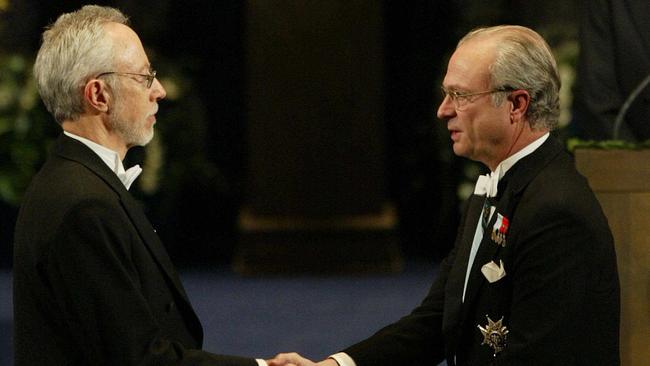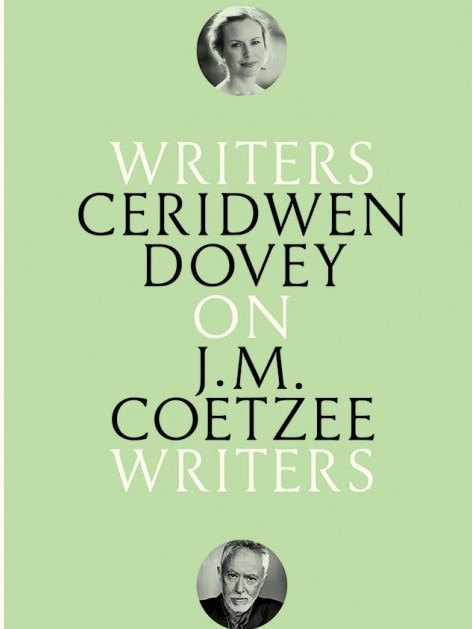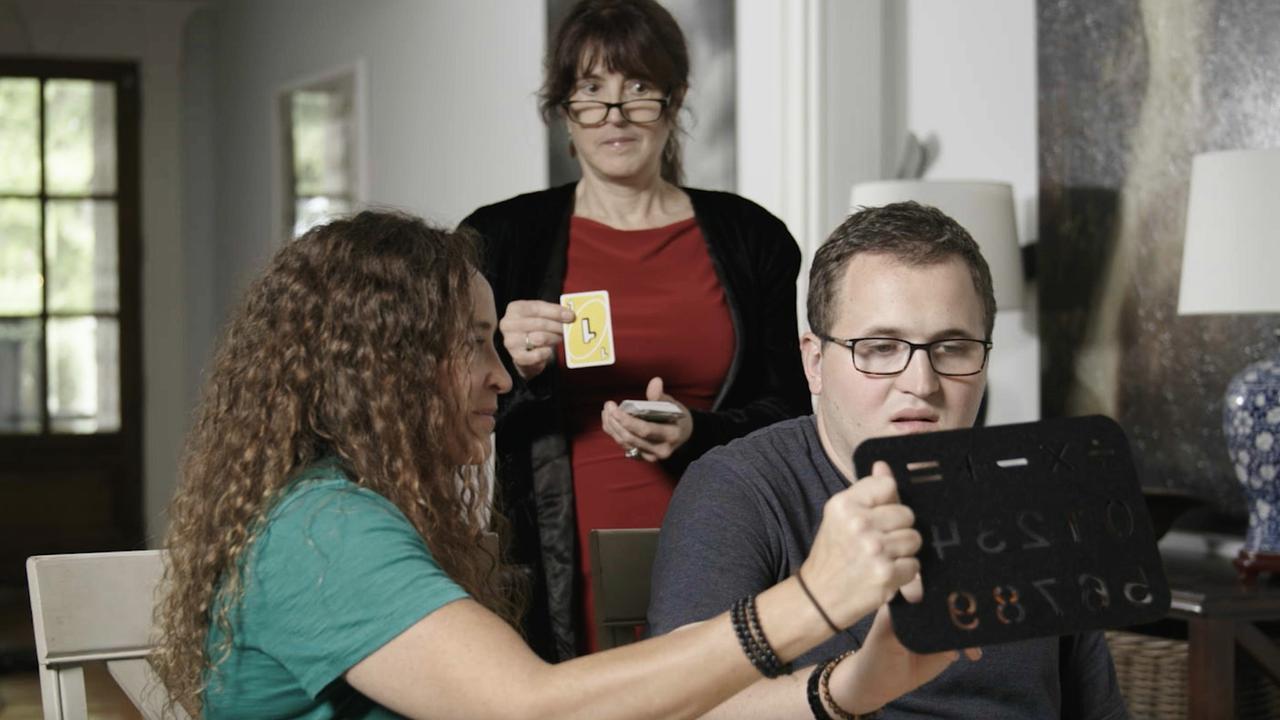Ceridwen Dovey on JM Coetzee: imbibing author with mother’s milk
Ceridwen Dovey has lived with JM Coetzee in her life since she was a baby, when her mother was discovering his novels.

However intimate the link between reader and writer may be, their relationship retains an imbalance, an inequality at its heart. This is because readers, for all their care and insight, scholarly acumen or critical flair, exist to the degree that they engage with a text.
A book may sit dusty and unloved on a library shelf — it may be unfairly ignored or justly forgotten — but it nonetheless exists: an artefact of mental commitment and imaginative effort. When some reader finally does crack its spine, they activate the text and to some degree assist in completing the creative act. They initiate the act of communication that brings a text to life.
But the markers of authorial intention, the imprint of personality that shadows each sentence of that book, comes first. The reader, arriving afterwards, must justify their presence in the relationship, even if only to themselves. Criticism is the noise we make to try to identify what it is about a book that has moved us, what ideas it has incubated in our minds.
This imbalance is supercharged when it comes to an author of uncommon intelligence or stylistic force. Think of those authors who terrify — Christina Stead with her ferocious passions, Patrick White with his division of the world into vulgar mass and spiritual elect, VS Naipaul and his lacerating perspectives, often truest when most unfair — and then ponder what chutzpah it takes to embark on a monograph of JM Coetzee, one of the most thrilling authors of the late 20th and early 21st centuries, as well as one of the most astringent, reserved, theoretically learned and ethically alert.
Ceridwen Dovey, novelist and essayist, is, like Coetzee, South African by birth and Australian by circumstance. Her forebears also were Afrikaners who made a home in English language and culture as a way of escaping a marred inheritance of racially inflected ideology. Her novels similarly combine a strong attraction to aesthetic form — an attraction to what is beautiful — modified or undercut by social and political concerns that can render efforts to write well for its own sake seem shallow or downright wrong.
She is kinder, less obviously willing to sacrifice all on the altar of literary achievement. But only a fool would think her a soft touch in the face of genius. In this all-too-brief book, she uses Coetzee’s own strategies in subtle homage. The result is a sincere but never unconscious fan letter to a primary creative figure.
For subtle, read indirect: because Dovey only intermittently places her own reading experience first in this essay.
Instead, she relates the critical encounters with Coetzee that a groundbreaking scholar — one of the first to publish a book on Coetzee’s work, the first to intuit the mechanisms at work in his novels and quasi-novels — had before her. Fascinatingly, the scholar in question is Dovey’s mother, Teresa.
Dovey describes how she first imbibed Coetzee’s words — via her mother’s milk. It happens that Teresa Dovey was reading early work by the then relatively unknown novelist while breastfeeding her daughter, who was born in 1980. The mode of identification, then, is intimate; but intimate at one remove. As an expression of filial piety, Ceridwen Dovey’s essay takes pains to acknowledge that it was Teresa Dovey who got to Coetzee first, who most clearly took his measure.
The ground-level fact of Coetzee’s career is to do with this demographic link, according to the younger Dovey. His generation was the one that grew into apartheid. They were the men and women who profited by it, if they were white and middle-class. And they were the people who were haunted by the brutal inequity baked into their social compact, if they were figures of thoughtfulness and conscience.
Because Teresa Dovey experienced what Coetzee experienced (she and her husband were obliged to leave South Africa suddenly, for Melbourne, after being accused of political agitation), she was tuned to his fiction’s frequency.
She saw how his South African-era novels were concerned to critique the political situation of his place and moment. She also saw how Coetzee’s intellectual honestly — his integrity as an author — would not permit him to simply update those pastoral narratives of his literary forebears that sought to locate some past idyll in which things were better by dint of their temporal distance from more explicit racial laws.

“It was the romanticised pastoral narratives of white South African authors,” writes Dovey, “first English and later Afrikaans — that he was critiquing in the novel [1977’s In the Heart of the Country], my mother believed. Those earlier narratives voiced a longing for a lost rural past before industrialisation and urbanisation, but were incapable of acknowledging that this idyll depended on the systematic abuse of black people as slaves and labourers.”
Instead, Coetzee deployed the emerging intellectual currents from Western Europe during the 1970s and 80s — those ideas that we place under the broad rubric of “theory” — to render his narratives self-conscious and critical of the stories they had to tell. As Dovey puts it, Coetzee’s novels “did theory” on themselves. Of Waiting for the Barbarians, perhaps Coetzee’s first major work, Dovey writes of how the author
… undercuts this tradition of writing with empathy about the plight of black people and with shame about white guilt: he reveals the blind spots and assumptions about self and other embedded in this confessional mode, no matter how well-meaning (or self-flagellating) the author may profess to be.
This bracing refusal to decline white guilt or succumb to it as a form of glorified self-abasement is at the heart of Coetzee’s project.
For Teresa Dovey, as for a growing number of readers, his was a voice that spoke for her as well: “Coetzee’s novels gave my mother a vocabulary for her own divided identity — allowed her to speak to herself from outside herself — by carefully staging these conflicts and contradictions.”
Of course, this project expanded well beyond a narrow critique of nation. It extended outwards to explore postcolonialism in its broadest sense. And beyond that, to the place of women caught in these systems:
In Foe, my mother believes, Coetzee was addressing the dilemmas of feminism at that moment in history: how do women find a speaking position for themselves, how do they erect a self outside the family, outside the colonies, outside the patriarchy? Can and should feminism align itself with postcolonialism, or does this let one form of freedom and empowerment cancel out the other?
One of the joys of Dovey’s essay is its desire to celebrate Coetzee’s depictions of women. From Elizabeth Curren to Susan Barton to Elizabeth Costello, he has furnished contemporary literature with a cast of woman who are strong without being patriarchs in drag. “They are mothers but also thinkers,” writes Dovey, as though the author were nodding to her own.
The only missing part here — understandably, since space is so constrained — is a larger discussion of Coetzee’s attitude towards the animal world. His desire to continually expand our circle of care, concern and responsibility has been a prominent component of his fiction and his rare public interventions.
What Dovey does do is point to the ways in which the author has been ahead of the curve in the broadest sense:
Coetzee has always been ahead of the pack, challenging the rest of us to keep up, resisting our attempts to pin him down. For it’s at this frontier between language and silence that Coetzee’s writing constantly tries to locate itself. Through his characters who exist at the fringes of society, he gestures toward a desire to creep over the border of what’s possible to utter, to test the limits of the sayable.
While Dovey curates her mother’s insights in a way that fits with her own critical project, she generously allows Teresa Dovey the last word — or, indeed, her refusal to have a last word.
While never relinquishing her love of and respect for Coetzee’s work, including his late “Jesus” novels, which have mystified many readers, Dovey’s mother no longer seeks to take his work apart to see what it does, to deconstruct his narratives like so much intellectual Lego.
Rather, writes Dovey: “She has come to believe that Coetzee should be left in peace.”
Like his character Magda, he should be allowed to remain an “enigma with a full soul” rather than one “emptied of … secrets”. His books might instead be accepted as invitations to dance, opportunities to recall for an instant,
as the boy David does, and the old man Simon too, what it feels like to close the gap between self and stars.
Geordie Williamson is chief literary critic of The Australian.
Writers on Writers: Ceridwen Dovey on JM Coetzee
Black Inc, 96pp, $17.99 (HB)



